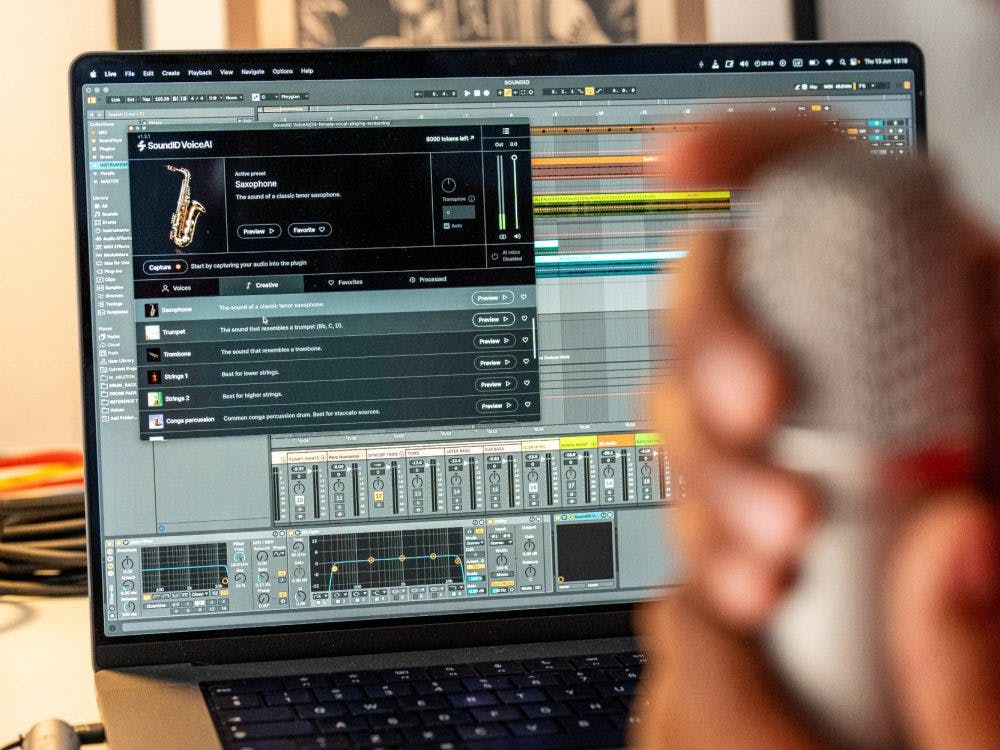AI music production technology transforms independent music creators by removing traditional barriers that once limited access to professional-quality sound. Through affordable AI-powered tools for vocal processing, mastering, and composition, independent artists can now achieve studio-grade results from their home setups. This democratisation of music technology enables creators to produce, refine, and distribute their work without expensive equipment or extensive technical training, fundamentally changing how music gets made.
Why independent music creators need better access to professional tools
Independent artists face significant financial and technical hurdles when trying to create professional-sounding music. Traditional studio sessions can cost hundreds of pounds per day, whilst high-end audio equipment and software often require substantial upfront investments that many creators simply cannot afford.
The technical expertise barrier presents another challenge. Professional mixing and mastering require years of training and experience to master properly. Many talented musicians struggle to translate their creative vision into polished recordings because they lack the technical knowledge to operate complex audio equipment effectively.
Studio time limitations also constrain creativity. When you’re paying by the hour, there’s pressure to work quickly rather than experiment freely. This environment can stifle the creative process that independent music creators need to develop their unique sound and artistic identity.
What AI tools can independent music creators use today?
Modern AI music production offers a comprehensive suite of tools designed specifically for independent artists. Vocal processing plugins powered by artificial intelligence can transform a single voice recording into multiple backing vocals, create harmonies, and even convert humming into realistic instrument sounds.
AI mastering platforms analyse your tracks and apply professional-grade processing automatically. These tools understand frequency balance, dynamics, and loudness standards across different genres, delivering results that rival traditional mastering engineers at a fraction of the cost.
AI audio tools now include composition assistants that help generate chord progressions, drum patterns, and melodic ideas. Some platforms can analyse your existing music to suggest complementary elements or variations that maintain your artistic style whilst adding new creative possibilities.
Advanced vocal AI technology, such as sophisticated voice processing plugins, enables creators to transform their recordings in ways previously impossible. You can create entirely new vocal characters, generate backing vocals from a single take, or even convert vocal melodies into realistic instrumental parts.
How does AI reduce music production costs for independent artists?
AI eliminates the need for expensive studio bookings by bringing professional-quality processing directly to your home setup. Instead of spending thousands on studio time, you can achieve comparable results using AI-powered plugins that cost a fraction of traditional studio fees.
The technology reduces dependency on hiring session musicians and vocalists. With AI voice processing, a single vocalist can create multiple character voices and backing vocal arrangements that would typically require hiring several performers. This capability dramatically cuts production budgets whilst maintaining creative flexibility.
Music production software powered by AI also eliminates the need for extensive hardware investments. Cloud-based processing options mean you don’t need powerful computers to run complex audio algorithms, making professional tools accessible even with modest equipment budgets.
Time savings translate directly into cost reductions. AI tools process audio in minutes rather than hours, allowing you to iterate quickly and experiment freely without watching studio clocks tick away your budget.
Can AI help independent artists achieve professional sound quality?
AI technology now delivers professional-grade audio processing that matches traditional studio standards. Machine learning algorithms trained on thousands of professional recordings understand the subtle characteristics that define polished, commercial-ready sound.
Automated mastering AI analyses your tracks across multiple parameters simultaneously, applying precise EQ, compression, and limiting that human engineers would typically handle manually. These systems understand genre-specific requirements and can adapt their processing accordingly.
Vocal enhancement through AI addresses common recording issues that plague home studios. The technology can reduce background noise, correct pitch inconsistencies, and add professional polish to vocals recorded in less-than-ideal acoustic environments.
Music creation tools powered by AI also maintain consistency across entire projects. Unlike human engineers who might have off days, AI processing delivers repeatable, reliable results that help independent artists maintain professional standards throughout their releases.
What are the limitations of AI in music creation?
AI technology cannot replace human creativity and artistic decision-making. Whilst AI excels at technical processing and pattern recognition, it lacks the emotional intelligence and cultural understanding that drives meaningful musical expression.
Current AI systems work best with specific types of input material. Heavily processed audio, polyphonic sources, or recordings with excessive reverberation can produce unpredictable results that require human intervention to correct.
The technology also struggles with context-sensitive decisions that experienced producers handle intuitively. AI might apply technically correct processing that doesn’t serve the artistic vision of a particular song or genre.
Music technology powered by AI requires human oversight to achieve optimal results. Understanding how to prepare input material, select appropriate presets, and interpret AI-generated suggestions remains essential for successful implementation.
How AI empowers the next generation of independent music creators
AI represents a fundamental shift in music production accessibility, removing barriers that have historically separated amateur and professional creators. This democratisation enables talented artists to focus on creativity rather than technical limitations or budget constraints.
The technology continues evolving rapidly, with new capabilities emerging regularly. Future developments promise even more sophisticated tools that will further level the playing field between independent artists and major label productions.
Music production democratisation through AI creates opportunities for diverse voices to enter the industry. Artists from different backgrounds and economic circumstances can now access tools that were previously exclusive to well-funded studios and established professionals.
As AI technology advances, we expect to see continued innovation in areas like real-time collaboration, intelligent arrangement suggestions, and even more sophisticated vocal and instrumental processing. At Sonarworks, we’re committed to developing AI-powered solutions like SoundID VoiceAI that enhance creativity whilst maintaining the human element that makes music meaningful and authentic.
If you’re ready to get started, check out VoiceAI today.



